This book provides answers to the readers’ primary questions about succession, i.e.
- Where to begin?
- The ways to implement
The sole purpose is to help the reader understand the basics of succession in a simplified manner. It will be helpful for professionals and business owners to understand the critical aspects of succession planning and create strategies for better business continuity planning.
The Present Publication is the 3rd Edition, authored by CA Ravi Mamodiya, with the following noteworthy features:
- [Five-Step Approach] to handle the wheel of succession to plan, manage and see the expectations
- [Technicalities explained in a Simple Manner] To avoid getting caught in the web of laws & rules, the author has presented the technicalities suited for a layperson, too
- [Diagrams, Charts, Case Studies & FAQs] are embedded in the book to help the reader to gain better insights on the topic
- [Summaries] Each chapter consists of key takeaways to revisit the learnings and remember the important points to solve the readers’ doubts and provide clarity
- [Authors’ Personal Experience] with different clients, including those faced amongst family, friends, and relatives, are included in the book to help the reader grasp the practicalities and realities of day-to-day life
- [Discussion on Estate Planning] which includes:
- Indian Succession Act
- Hindu Succession Act
- Shariat Law
- Private Trust and its Law, along with the applicability of the Income-tax Act in different situations
- Creation of HUF & its Taxation
- [Liquidity Management] This book covers the cruciality of liquidity management during the transition of generation and adoption of various exit strategies. It provides practically implementable tools to continue the legacy and clears out the basic queries through FAQs and checklists to help the reader summarize and understand the succession in the best possible ways
The detailed contents of the book are as follows:
- [Succession Initiation] The first part provides the basis of succession, the kinds of succession planning, and ways to understand the same. This part also consists of the myths and reality about succession, challenges in family business management and the lifecycle of the business
- [Succession Preparation/Rehearsal] The second part discusses the guiding principles and strategies to handle succession planning and the approach to pursuing the same. In this part, the most important topic is a five-step approach to address the succession and wheel of succession to plan, manage and see the expectation of the same
- [Owner’s Vision] Part three consists of the owner’s vision, which is the first step of the five-step approach. In this part, the business owner/professional will take the clarity about the vision of the business internally as well as externally and create a better visualization of the business for the long term, along with the benefits to all the stakeholders
- [The Family Constitution] The fourth part talks about the purpose and creation of the Family Constitution. This part also deals with a better understanding of the family council, the creation of the constitution, the Family Fund, the Family board creation and their regular meetings. In this part, we have also talked about the tools for family governance
- [Aligning the Family Business] The fifth part focuses on aligning the family vision with business and creating a better bridge so that the values of the family can remain intact along with the growth of the family business. Contingency planning is an integral part of this succession journey dealt with in this part
- [Successor Identification & Grooming] The following part talks about the successor’s identification and the grooming of the successor. This consists of the HR strategies and the readily available tools to help make it happen. This also talks about the assessment, management and grooming of the successor
- [Ownership Transfer and Estate Planning] In the seventh part, this book explains the estate planning and applicability of the different laws like the Indian Succession Act, Hindu Succession Act, Creation of Private Trust and its structuring, along with the Income Tax Act and its provision applicable in different situation
- [Succession in the Service Industry] The eighth part talks about the succession planning steps for the service industry belonging to SMEs. It highlights the difference between business and service industries and defines the 5 step approach for the service industry
- [Exit Strategies] The ninth part details the exit strategy divided into three major parts. Based on the exit strategy chosen out of the three options available, the execution steps for succession are defined
- [Case Studies & FAQs] All the parts also consist of the Checklists and Key takeaways at the end of every part, which will help the reader to summarise and understand the succession in the best possible ways
Reviews
Shivram Sethuraman | PGDM IIM Lucknow
Independent Director Apollo Home Healthcare Ltd. | Ex-Director – Deloitte Human Capital Advisory Services
“I found this book fruitful for all business owners to help them create a roadmap for a smooth transition of power from one generation to the next.
The simplicity of this book allows any kind of business owner to create a succession plan and, most importantly, guides towards how to execute such a plan practically.
The author explained the concepts very well with relatable practical examples.
The ‘Five Steps’ approach, which he discusses in the book, brings absolute clarity on the continuity process and draws out a clear pathway for succession.”
Read Less
About the author
Ravi Mamodiya
Ravi Mamodiya is a renowned Chartered Accountant, entrepreneur, and business consultant known for his unconventional approach to business and organizational processes. A 2011 fellow of the Institute of Chartered Accountants of India, he earned his postgraduate degree from Rajasthan University. Ravi is the Managing Partner at M/s AR Mamodiya & Co., Chartered Accountants, based in Jaipur.

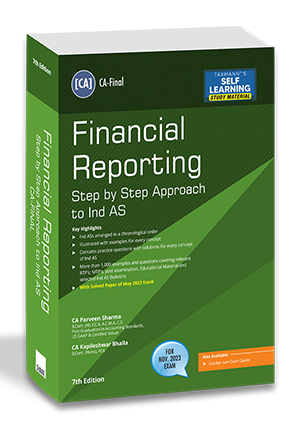















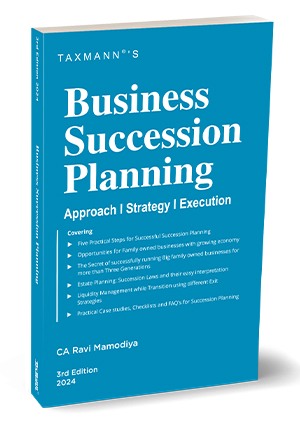
![Taxmann's - Bharatiya Sakshya Adhiniyam 2023 | Flexi-bound [Pocket] Edition](https://cashapers.in/wp-content/uploads/2024/08/Book.1.22.jpg)





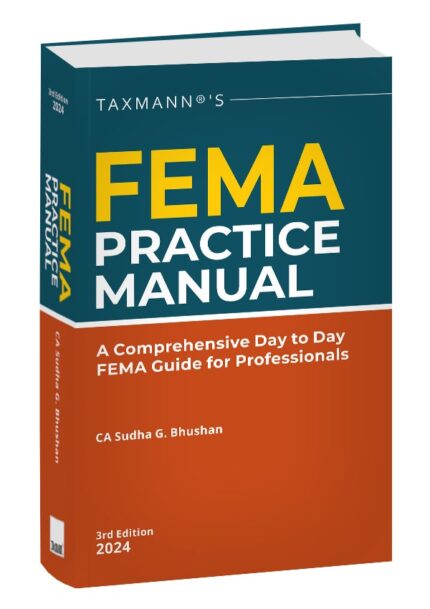

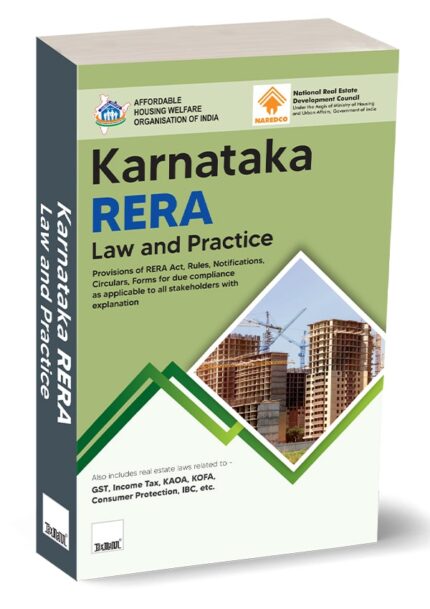
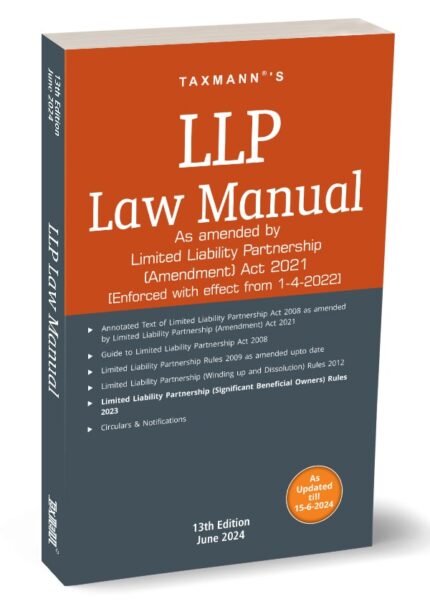


Reviews
There are no reviews yet.